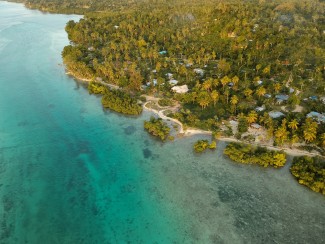On the 'European Green Deal', greening international development and tackling inequality
*** Originally published in OECD-Development Matters on 31 January 2020 ***
With the resounding failure of the UN COPs to mobilize a strong international response to climate change and inequality, concerned citizens around the world are rightly beginning to show frustration and even anger. And yet, at long last on the final year before the turn of the decade, a major high-income donor of international aid publicly proclaimed it would step up to the plate and propose radical change.
The new European Union (EU) Commission promised to bring to the floor a “European Green Deal” that will drastically transform the very foundations of the EU economy. The green deal has clear implications for fighting inequalities, as well as for development. The “EU can use its influence, expertise and financial resources to mobilize its neighbors and partners to join it on a sustainable path.” The EU announces a strong “green deal diplomacy” focused on supporting sustainable development globally, engaging countries to end fossil fuel subsidies, phasing out fossil-fuel based infrastructure, investing in climate finance and climate resilience, promoting green regulations, and creating an international carbon market to provide reform incentives.
The green deal will encapsulate the Commission’s decade-long strategic shift towards sustainable development and further enhance visibility, as well as past work with developing partners on sustainability. The EU already cooperates in development in the places that are the hardest hit by climate change, chiefly least developed countries (LDCs) in Africa and Small Island Developing States (SIDS) elsewhere. Moreover, the EU already has an alliance with the African Union on sustainable investment and jobs. Given this solid basis from which to start, the EU should ensure at least two things. First, green international development should become a more central and important plank in the EU green deal, as what the world is really looking for is a clear path towards a new kind of modernization. Second, the EU should further stress that non-progressive climate mitigation policies can hurt communities and set back the green agenda. Indeed, climate change in the EU can only be dealt with if it is dealt with everywhere. Tying the fight against climate change to inequality is a must. It is a well-known fact that developing countries that contributed the least to climate change will suffer the greater consequences. All types of pre-existing inequalities will be worsened by the climate crisis everywhere.
See OECD-Development Matters for more.
-------------
Filippos Pierros is Minister-Counsellor, Vice-Chair of the Development Assistance Committee and the Development Centre Governing Board, EU Delegation to the OECD. The views expressed in this piece reflect strictly those of the author.
Originally published by Thomson Reuters Foundation News Monday, 22 February 2021
If you would like to reuse any material published here, please let us know by sending an email to EIF Communications: eifcommunications@wto.org.



